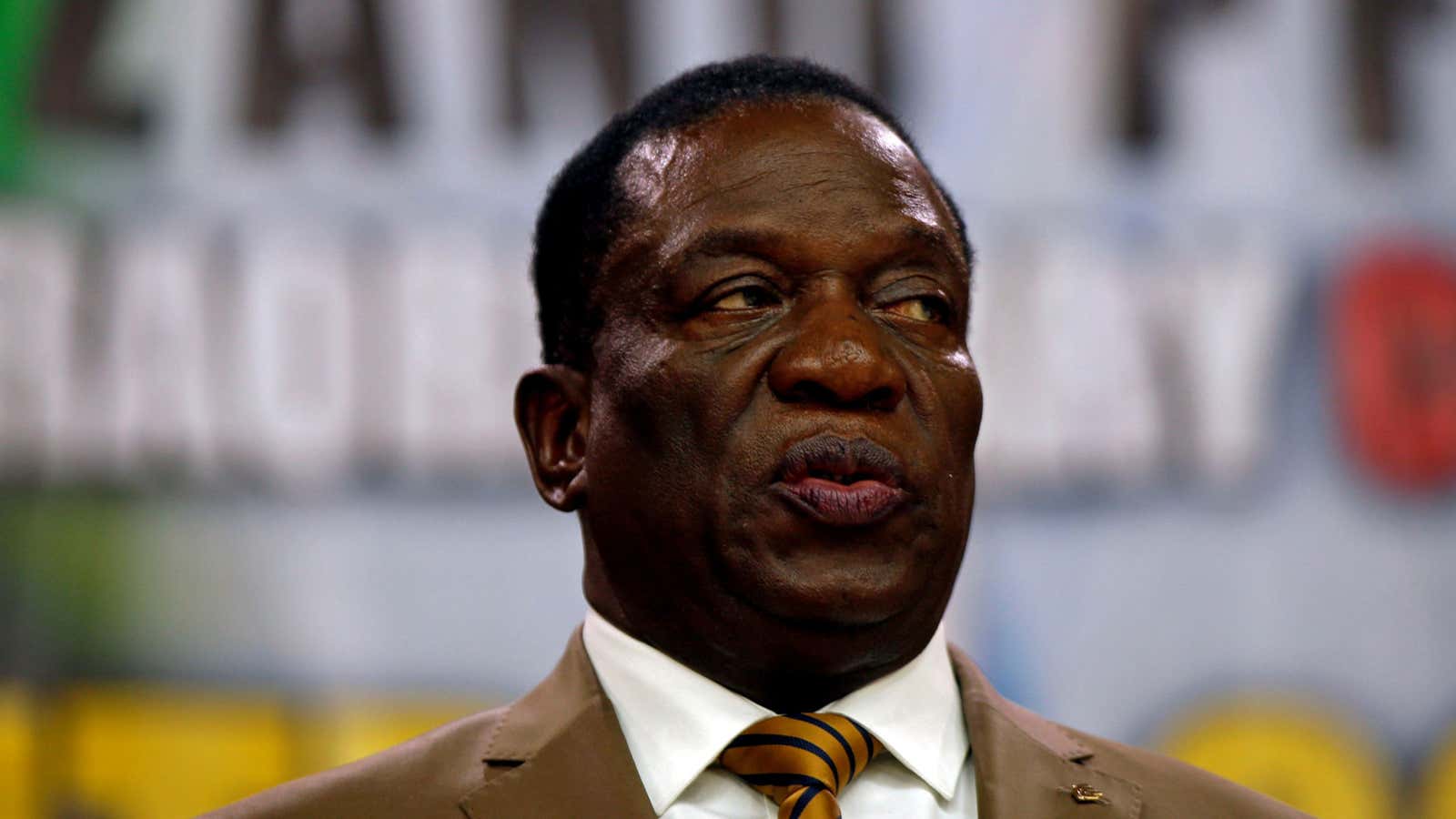Harare, Zimbabwe
Political tensions are rising in Zimbabwe after president Emerson Mnangagwa confirmed July 30 as the date for parliamentary and presidential elections. It’s the first election since former president Robert Mugabe, who ruled for 37 years, was eased out of power last November. It’s also the first in which Mugabe will not be on the the ballot.
The constitution stipulates an election is due in Zimbabwe “not more than 30 days before the expiry of the current” term which will lapse on Aug. 21, according to a Zimbabwe government gazette. The current term, under which Mnangagwa took over, started on August 22 2013 when Mugabe was sworn in.
The date Sept. 8 has been gazetted for a presidential election run-off in the event that there is no outright winner on July 30.
Mnangagwa, elevated by his Zanu PF party, has led Zimbabwe since November when former leader, Robert Mugabe was removed but there is still uncertainty over the political framework in Zimbabwe. There’s also uncertainty with his opposition rivals who already in campaign mode, going around the country and staging campaign rallies.
Separately, there is mounting anger over the dismissal by the Constitutional Court of an application to have Zimbabweans resident in other African and around the world vote in this year’s election.This is significant given many Zimbabweans fled the country over the last two decades as the country’s political and economic structures collapsed under Mugabe. Only those Zimbabweans on national duty in other countries are eligible to vote.
Mnangagwa will face a big challenge from a rejuvenated Movement for Democratic Change (MDC) opposition previously led by the late Morgan Tsvangirai who are ratcheting up the pressure for him to create a free and fair electoral framework. Officials in the MDC claim Mnangagwa, with the help of the military, is plotting to rig the July 30 election amid claims that state media and the electoral body are not impartial.
The 40-year old Nelson Chamisa, who heads the MDC, which has cobbled together an alliance with smaller opposition parties aligned to the MDC, says he is riding on a youth “generational consensus” agenda in his bid to wrest power from Zanu PF. Chamisa may have revitalized the opposition after the death of Tsvangirai and analysts say he has a chance to turn the tables on Zanu PF, especially at a time when Zimbabwe’s economy is worsening, amid price increases, cash shortages and allegations of militarization of state institutions.
Chamisa on his part has been criticized for being politically immature for his off the cuff rhetoric that he will build spaghetti roads, airports and bullet trains if elected into power. The youthful opposition leader has become something of a meme with the #Chamisachallenge.
